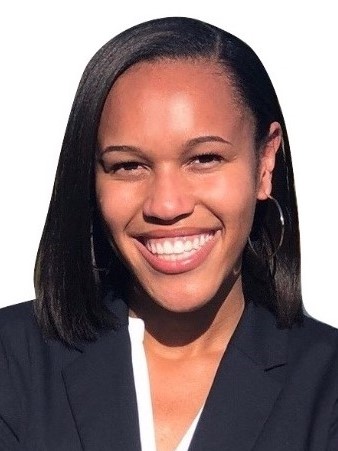 Janelle L. Taliaferro, a 2021 graduate of Rutgers Business School, has worked to amplify Black voices at the university and to educate students on hunger awareness. The Livingston Alumni Association (LAA) of Rutgers University-New Brunswick has honored Taliaferro as one of two recipients of the Riki Jacobs Livingston Pride Award for 2021.
Janelle L. Taliaferro, a 2021 graduate of Rutgers Business School, has worked to amplify Black voices at the university and to educate students on hunger awareness. The Livingston Alumni Association (LAA) of Rutgers University-New Brunswick has honored Taliaferro as one of two recipients of the Riki Jacobs Livingston Pride Award for 2021.
Taliaferro, from Lake Wylie, South Carolina, majored in supply chain management and marketing science, with a concentration in global business. As a student, she affiliated with both the Honors College and the Douglass Women’s College at Rutgers in New Brunswick.
Establishing the Black Business Association (BBA) is Taliaferro’s proudest accomplishment as a Rutgers student. “Having a platform for minority students to share their ideas, discuss their plights, and continuously learn in every academic area, is a necessity in education,” she said. “It is specifically important when preparing for a career in corporate America or entrepreneurship. … BBA is the only student organization on Rutgers’ New Brunswick campus catering to Black students interested in business careers, and the first in many years.”
In her work with the Rutgers chapter of the National Association for the Advancement of Colored People (NAACP), Taliaferro helped to organize the first rally against racism and for Black solidarity in four years on campus, demanding equal treatment across all student demographics
Taliaferro also served as co-president of Student -Organized Rutgers Against Hunger (SO RAH), working with local farms, food banks, and soup kitchens, to feed the community and to educate students on food insecurity. In her Pride Award application, Taliaferro noted that 30 percent of college students are food insecure.
For 18 months, Taliaferro served as a career prep fellow in the Management Leadership for Tomorrow (MLT) program, traveling to Dallas and Minneapolis in 2019, before the pandemic hit.
“At each of our conferences we had the ability to demonstrate our analytical skills through case studies, our leadership through small and large group roundtables, and most importantly, become a family while having representatives from the top companies in the world interacting and leading our sessions,” she said. “The deeper meaning, I see, behind supporting and fueling students of color is building up an army full of diversity of thought. Throughout my time in MLT, I was the only fellow on behalf of Rutgers New Brunswick in my cohort.”
As a student, Taliaferro completed internships at GlaxoSmithKline, Corning Inc., and United Parcel Service. Some of her non-business interests include being a “world traveler (17+ countries traveled), avid concert goer, and passionate New York City foodie.”
Since August 2021 Taliaferro has worked as an associate product manager at Visa Inc. in the San Francisco area.
“I have always been passionate about creating healthy communities throughout my life and college career, championing inclusion efforts, and giving back,” she wrote in her Pride Award essay. “I would love to bring my activism efforts into corporate America to leverage the social responsibility of large institutions.”


